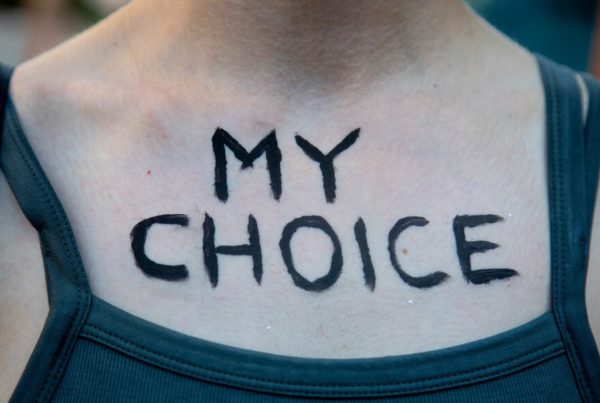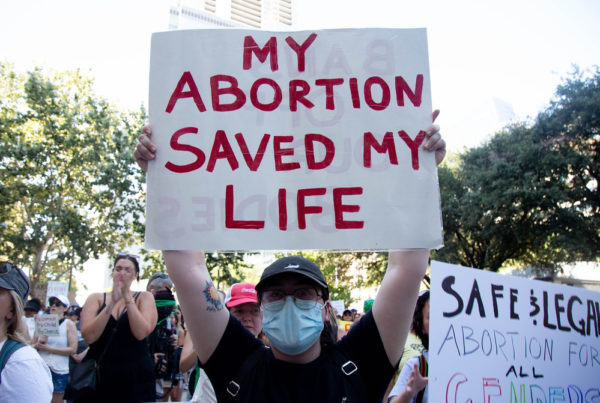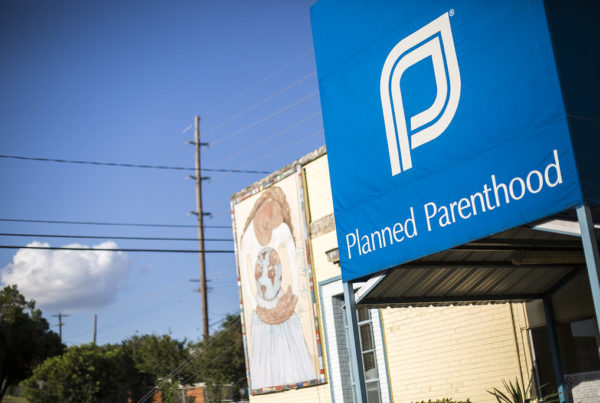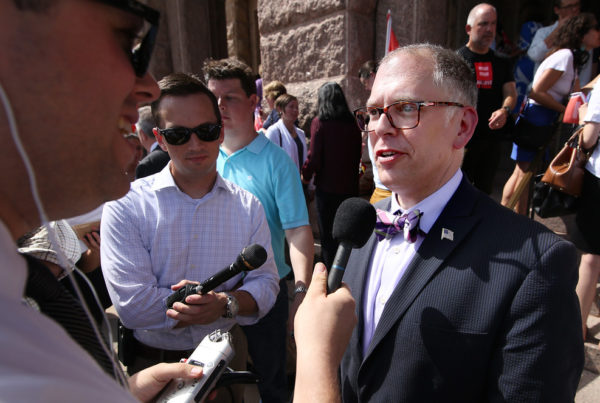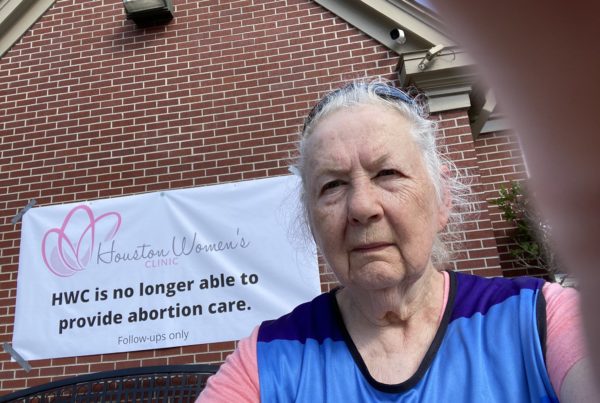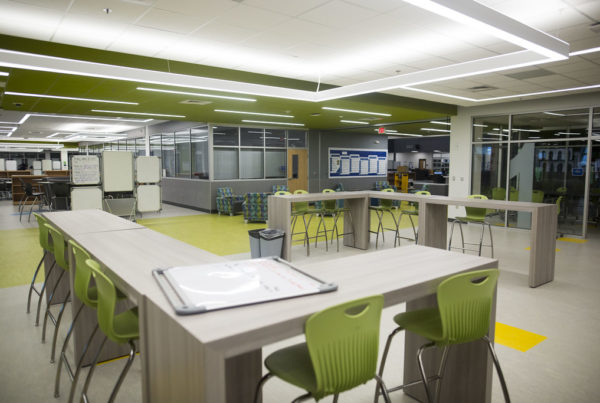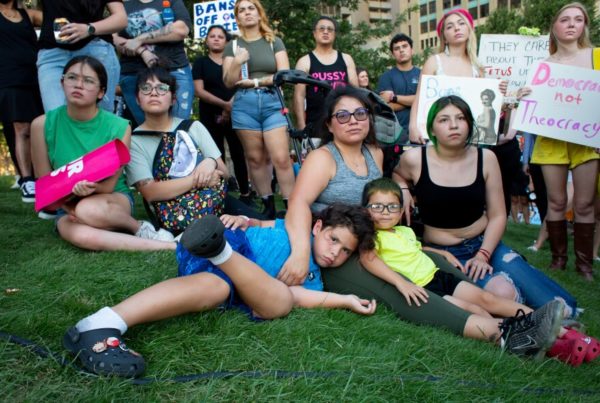“Abortion is a disability issue.” It’s something that many activists have been saying for years. Disability rights activists assert the importance of bodily autonomy – not only evoking the history of forced sterilizations, but also erroneous societal assertions about people with disabilities.
It’s a history and stigma that lifelong Texan Samantha Chavarria has been pushing back against for some time now. She’s an activist and writer and wrote about the state’s SB 8 and its ramifications within the disabled community in September. She spoke with Texas Standard and says that infantilization of those who are disabled by the courts and society has played a large part in leaving her community out of the conversation. Listen to the interview above or read the transcript below.
» The Texas Standard wants to hear from you: Share your reaction to the Supreme Court’s abortion decision
This transcript has been edited lightly for clarity:
Texas Standard: What do people just not get when you say abortion is a disability issue?
Samantha Chavarria: I think mostly when people hear ‘abortion is a disability issue,’ they start to think about eugenics and they don’t realize that it cuts both ways — both for sterilization use against the disabled community and taking away the right to choose for the disabled community. Those have both been abortion issues since the very beginning. Just because there is a certain faction that wants to try to use eugenics as a scare tactic and try to get people to fear that abortion leads to that. They all seem to realize by using that against the disabled community, they’re also taking away the bodily autonomy of disabled folks who might want the right to choose for themselves.
Activists have said this has been co-opted by opponents of abortion rights — the idea that people might choose to abort their pregnancies should they learn that the fetus might have a disability. It seems like this could be a valid concern for some people.
I mean, it would be a valid concern for some people. But you have to put actual alive, disabled people ahead of hypothetical fetuses. So, at the end of the day, when you’re looking at the issue, it’s always going to be actual alive, disabled people over hypothetical situations.
On the issue of bodily autonomy centering on the person who’s pregnant and their decision: On the surface, it sounds like there’s no difference when it comes to what abled people are asking for and how disabled people view the issue. And yet, it doesn’t seem like we hear very often from disabled voices. I’m curious why you don’t believe that’s part of the fight. I’m wondering if this has to do with what I was referring to earlier, the erroneous societal assertions.
I think that, of course, is one of the issues. I think a lot of times society doesn’t give disabled people their autonomy, whether it be bodily autonomy, mental health autonomy, what have you. [The 1927 case] Buck v. Bell established that forced sterilization was legal as long as certain conditions were met. And those conditions were basically, you would have the disabled person say, ‘Oh, I don’t want to be sterilized,’ and still the judge, more times than not, would find, ‘Oh, no, we’re going to go ahead and sterilize you’ because society thought disabled people can’t take care of themselves or their own children.
And there’s also this mentality that disabled people don’t have sex. There’s this infantilism of disabled people where our rights are taken away from us just by societal understanding or expectation of what they think disability is. And I think that is what our main roadblock is, because, like you said, at the end of the day, disabled people only want the same thing that able-bodied people have, and that’s the right to make their own medical and lifestyle decisions.
In your story about SB 8 a while back, you wrote about how you were personally affected, or I should say nearly affected by the Supreme Court’s ruling. Could you say more about that?
So, I had an IUD for a number of years. But the IUD was misplaced because of strong menstrual cramps that I was experiencing, because of my fibromyalgia, and I got pregnant. I have three kids already, I have a loving husband, I have a good living. But, no matter what the reasons behind my decision, it was my decision that I wanted to abort the pregnancy.
And I had a hard time because of my disability, because of complications with the IUD, finding access to a doctor who could help me. So, it took a whole month and we were really cutting it close. I was really getting to a point where I was going to have to make a decision about organizing travel outside of the state if I had couldn’t get help. Thankfully, Planned Parenthood was able to accommodate me with my issues and they were able to perform, what was very much for me a lifesaving procedure.




